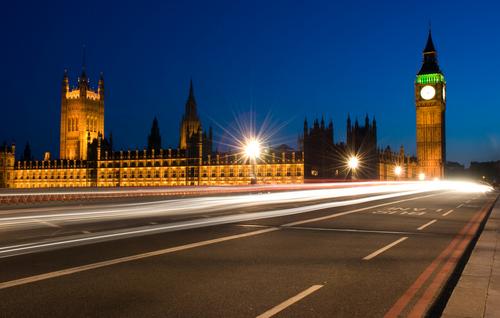Is Incest Wrong?

+ Firstly, the old, tired argument that “It’s not natural”.
+ Secondly, people claim that incest creates ‘deformed’ children.
+ Thirdly, and oddly, people exclaim it’s “just” repugnant.
In my time teaching students about making choices, especially moral ones, based on sound reasoning and evidence, we often range into areas many have not thoroughly considered. After all, everything deserves scrutiny if we are to be fairly sure an idea (or belief) is worth pursuing, defending and so on. If this idea is worth our support, it will pass tests of reasonable scrutiny; if it does not, it either means we must strengthen the idea by addressing its failings or discard it altogether. For example, there is no good reason to justify the oppression of gay people or women – though there are plenty of reasons people do. Thus because there are no good arguments to support oppressing gay people, the idea should be discarded and indeed opposed where it arises. In an effort to battle bad ideas, we should scrutinise (or at least be willing to scrutinise) every view, belief and idea we have.
Nothing is sacred in my class (indeed, we’ve debated the merits of sanctity itself). We engage with questions that focus on real-life matters, which tend to evoke knee-jerk reactions of dismissal and/or disgust.
With this in mind, my students asked whether incest or necrophilia is wrong. Since in many countries, both of these are automatically crimes, I think it’s important to consider what arguments there are for considering these as automatically wrong. However, just because something is right or wrong does not mean that the law follows suit. Something can be legal and be wrong by a moral standard, and vice versa. Here we are mainly considering the morality of these two supposedly taboo types of sexual conduct. Are they, by definition, wrong?
Incest
In Britain, when a young lady was ‘caught’ having sex with her brother, both siblings blamed the other, citing alcohol, desperation and so, on as motivations. This is not of concern. What is of concern is that “the pair were convicted of committing incest under section 1(1) of the Criminal Law (Consolidation) (Scotland) Act 1995”. The brother is 21, while his sister is 18. Now, according to the law, they should be convicted.
However, laws are not perfect. What should matter to us, firstly, is whether they’ve done something wrong.
Often when people hear incest, they assume rape or paedophilia, too. But here it’s clear that neither rape nor paedophilia are the problem in the recent case, since both siblings are adults and both consented – in the same way any other drunken couple implicitly consent, since neither partner was forced into it.
Assume they were not brother and sister; is the sex act wrong? Given the implicit consent and their ages, it’s not clear that this would be any different than other sexual engagements where, after the fact, one or both (or all three) regret the act. However, neither one feels the other was violated in the sense of calling it rape. So that’s not the issue.
Notice, though, that even if one of these two was violated – whether because s/he was too young or raped – then it would be the violation through rape or paedophilia that made it wrong, not the fact that they’re brother and sister.
So, we’re clear that what makes this wrong is solely the fact that it’s incest – that is, the fact that they’re brother and sister. But why does this make it wrong?
This seems entirely based on mere repulsion. To try articulate why incest should be viewed as inherently wrong is difficult and there’s no clear argument. Here are a few arguments that my students and others have offered.
Firstly, the old, tired argument that “It’s not natural”. This argument must, like cancers and earthquakes, disappear from our planet. Cancers and earthquakes, by the way, are also natural. The philosopher Julian Baggini has correctly said that something being natural tells us no more about its moral property than if you said something was red. Good and bad things are natural, so not everything that is natural is good (or bad). (Considering that humans are part of the natural world, I see no reason for the distinction in most instances anyway. ‘Natural’ is not part of my vocabulary, since it seems largely useless.)
Secondly, people claim that incest creates ‘deformed’ children. This is not entirely true. There is a greater risk of various handicaps, true, due to a closer sharing of genetics. But there is a danger in every form of child creation that the child might be handicapped. There might be a difference in degree of risk in incestuous sex acts but certainly not inkind. And, similarly, if we continued with this logic, it seems that any person who has an increased risk of having children with disabilities ought not to reproduce (or should be condemned). The fact that we don’t condemn or restrict people with a verified increased risk of producing disabled children indicates that even this reason isn’t solid.
So, this view doesn’t work either. Furthermore, this assumes sex acts are solely for having children, whereas this is nonsense, since we have effective contraceptives and other measures to prevent pregnancy.
Thirdly, and oddly, people exclaim it’s “just” repugnant. We will examine this more closer later. Nonetheless, why should the sexual activities of two consenting adults concern us? This is the same question we can ask those who are ‘against’ homosexuality (which is like being against having blue eyes). It is none of our business what two consenting adults wish to do (as long as no one else is harmed/involved without consent).
Repugnance helped many things we now consider wrong to continue in the past, such racial and sexual inequality. We can’t rely on repugnance to justify our social policies, since our repugnance is simply that: our own. Besides which, people are repulsed by different things – and we cannot leave it up to the whims of our emotions to implement policies and laws which could, unnecessarily, cause suffering to other people, as is the case with gay people, women, and indeed the current brother-and-sister couple.
So these arguments fail. But if these arguments are sound, then this has a further implication.
What makes the case unfortunate is the young lady in question has been attacked and threatened by members of the public. Because of her ‘disgusting’ acts, she has been forced to flee her home. This seems to me unjustified. Violence is almost never the right response. Furthermore, as the arguments above have indicated, it’s not entirely clear what makes incest wrong when we are dealing with consenting adults. If we agree that consenting adults are allowed to have sex, then what makes these two people different, besides sharing parents? Why should sharing genetics make it a crime – or rather, something so monstrous that this young lady deserves to be treated like a diseased monster?
In considering this case, we are not encouraging incest, nor do we have to say we ‘like’ it. We don’t even have to say it is good or right. However, incestuous acts certainly need not be worth condemning a young lady over, nor does she deserve to be treated like someone requiring therapy. There is little justification for thinking she’s done something wrong.
What’s occurring here is inflating outrage – I don’t think there is such a thing as “moral” outrage – and personal disgust at an act, which has not harmed anybody else, to the point of having a lady’s life threatened for no good reason. Whatever the political situation, if we respect an adult’s right to engage freely in sexual acts with other consenting adults, it’s not clear why we draw a line based on genetics.
—





